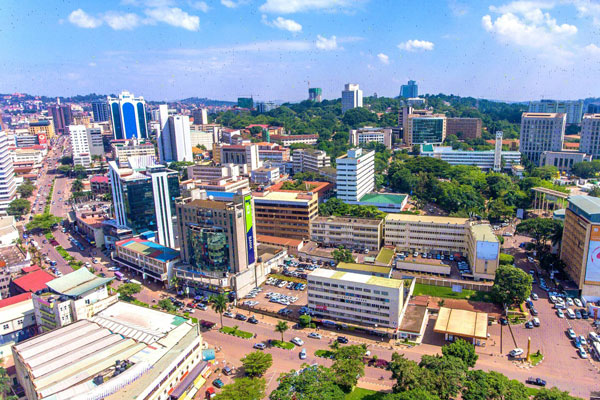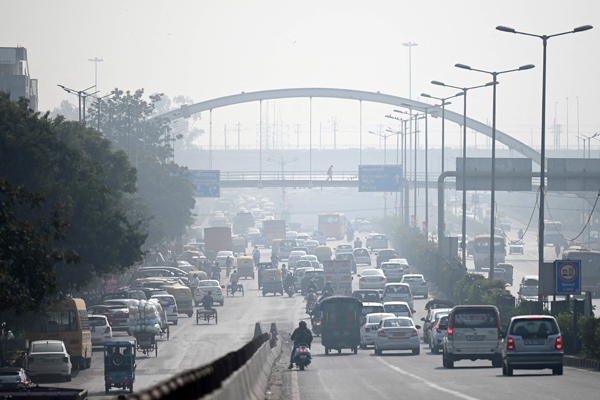Prime
Busia, Jinja, Aswan and Sharm El-Sheikh: The Road to COP27

Author: Ashraf Swelam. PHOTO/COURTESY
What you need to know:
- COP27 is Africa’s greatest opportunity to lead the conversation on climate change to meaningful and practical ends.
It was a sunny day in beautiful Busia, where I spent a full day last week. The main purpose of my visit was to hand over a $6 million solar power plant to the Ugandan government and the leadership of Busitema University on behalf of the Egyptian government and people.
The plant, which when connected to the national grid, will serve the Eastern region of Uganda, is the culmination of a 2018 agreement signed between the Egyptian Ministry of Electricity and Renewable Energy and the Ugandan Ministry of Energy and Mineral Development (MEMD), witnessed by no other than Presidents Abdelfattah El-Sisi and Yoweri Museveni. The $6million investment is one of the largest developmental projects to be funded by the Egyptian Agency for Partnership for Development (EAPD) in Africa. According to Dr. Brian E. Isabirye, Commissioner for Renewable Energy at Uganda’s MEMD, the 4MW of solar power produced by the plant will offset 126,000 tons of harmful CO2 emissions, the equivalent of planting over 2,964,400 trees or removing 22,324 cars from the road for a year. It will also result in $36 million in savings over the lifetime of its systems, not to mention the revenues it will accrue.
As the handover ceremony proceeded to the conference hall, I found myself looking at a room full of smiling young people, mostly students at the University, who account for more than 70 percent of Uganda’s fast-growing population. I could not help but think of the important contribution of this and similar projects, not only in generating and providing access to electricity, but more importantly for confronting one of, if not the most, important challenges facing Africa, and indeed the world, in the years to come: climate change.
On the way to Kampala, I decided to make a quick stop in Jinja. I stopped by our recently commissioned state-of-the-art medical center, serving the city and the surrounding districts. I also passed by the Egyptian irrigation mission which, together with the Ugandan Ministries of Agriculture and Water and Environment, has over the years been implementing multi-million, multiyear developmental projects advancing the water-energy-climate nexus, including through flood mitigation, and providing access to clean water.
Back on the road, I found my mind traveling to two Egyptian cities, namely Aswan and Sharm El-Sheikh. The first has since 2019 been home to the “Aswan Forum for Sustainable Peace and Development”, Africa’s premier gathering of leaders aiming to advance the peace-development nexus, with climate change likely to be at the heart of this year’s discussions. Mindful of the implications of climate change on peace and stability, as evident in the Sahel and Horn of Africa regions for example, the aim will be to advance the conversation on the peace-security-climate agenda in Africa in a meaningful and comprehensive manner across the “continuum of peace”, from conflict prevention to peacebuilding. A few months later, in November, Sharm El-Sheikh on the other hand will host the 27th UN Climate Change Conference (COP27), which promises to be one of the most important global conferences that Africa will host this year.
COPs return to Africa is an opportunity that can’t be missed. The continent’s starting point is to advance the critical understanding that responding to the urgency of the climate change threat requires ambitious, transformative, equitable, and holistic actions based on science, that aim to expedite the transition to low-emission and climate-resilience pathways to sustainable development.
In many ways, this is a continuation of Africa’s steadfast position on the issue. Throughout the long history of climate change global gatherings and conferences, Africa’s focus -rightly so- has always been on addressing climate change not merely as an environmental challenge, but more holistically as a developmental one. COP27 won’t be any different.
COP27 should also be an invaluable opportunity to shift from pledges to delivery and implementation through timely actions that rises up to the scale of the problem, as highlighted by the science and as confirmed by the political commitment made in Paris, which was reiterated in Glasgow.
This couldn’t be truer than in the discussions about the issue of financing, the centrality of which for the Global South at large, and Africa in particular, can’t be emphasized enough. Without mincing words, it is the prerequisite if Africa’s ambitious goals of adaptation, mitigation, and the transition to a green economy are to materialize.
While bridging the existing huge gap between needs and available funding is important, so is the form that such financing will take. Many African countries, already struggling to meet the needs of their fast-growing populations and the devastating socioeconomic impacts of what some have dubbed the “never-ending pandemic”, have neither the appetite nor the financial space to further burden future generations with additional debt and other forms of unsustainable funding.
Another important priority for Africa in the next COP will be adaptation. This should come as no surprise from a continent that contributes merely 4% of global emissions yet is one of the worst-hit by climate change, with dire consequence for its main economic sectors, most notably agriculture and fisheries. African livelihoods are also deeply affected by the increasing intensity, frequency and scale of the adverse impacts of climate change to which it must adapt, including droughts, floods, forest fires and sea level rise, leading to displacement and forced migration.
COP27 is Africa’s greatest opportunity to lead the conversation on climate change to meaningful and practical ends. The objective is clear: to meet the biggest challenge to this generation and future ones, while steadily moving on the path to sustainable peace, security, and development. As host, Egypt is determined to deliver on behalf of Africa.
Ashraf Swelam is the Ambassador of Egypt to Uganda.




